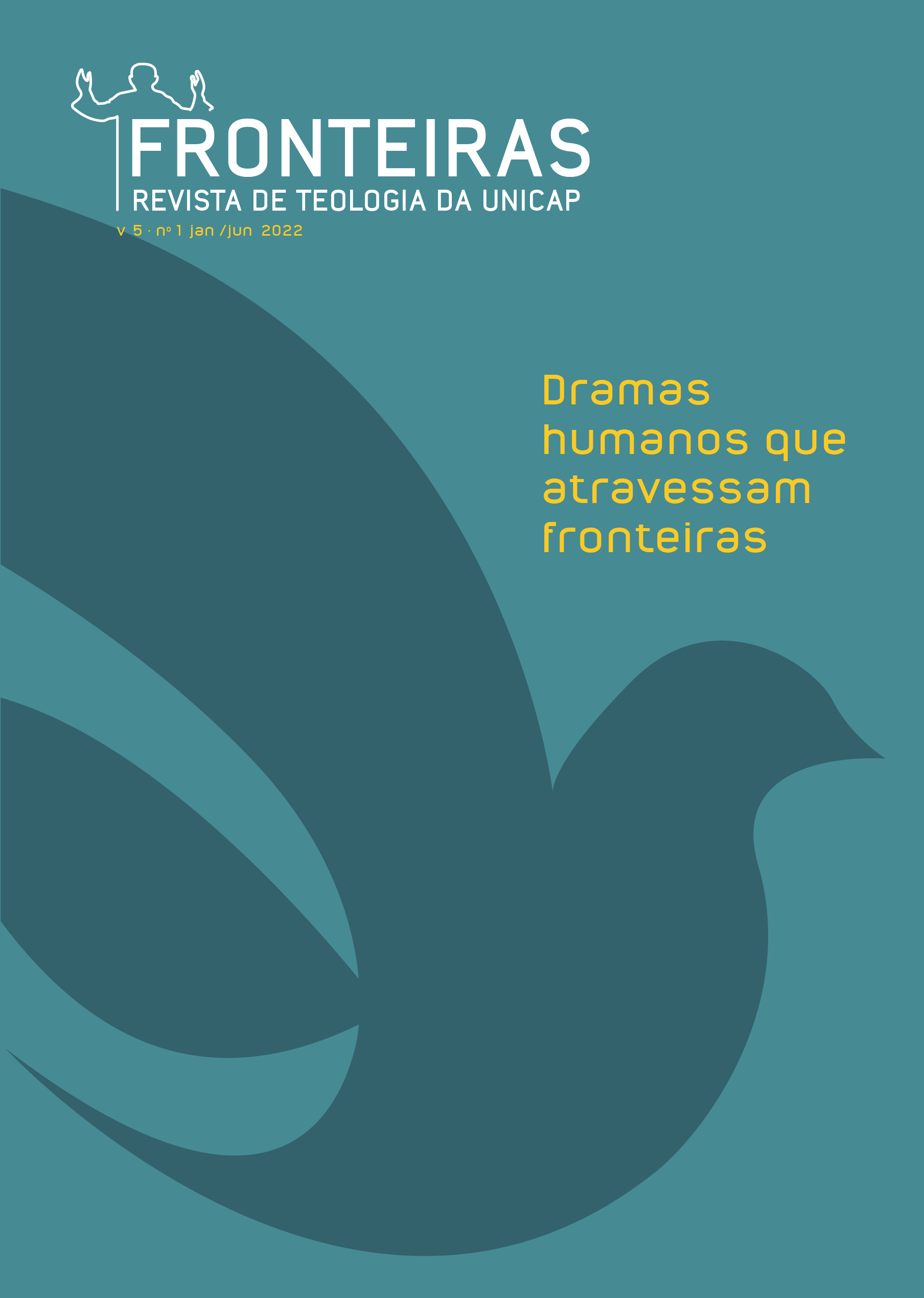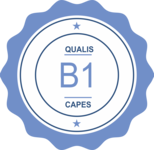Jurgen Moltmann's Theology of Human Rights in the Context of the Migration Crisis due to Climate Change
DOI:
https://doi.org/10.25247/2595-3788.2022.v5n1.p151-169Keywords:
Human Rights, Climate crisis, Environmental refugees, Jürgen Moltmann, AnthropoceneAbstract
This article analyzes the environmental refugee crisis as one of the most significant challenges of the 21st century from a interdisciplinary approach between philosophy and theology. Modern anthropocentric thinking has produced not only the separation between human beings and nature but has also devalued and reified it. Consequently, the Anthropocene and an anthropocentric understanding of human rights lead to the exclusion or lack of recognition of certain groups, as in the case of the displaced environment. On the one hand, the displacement of entire groups due to climate issues violates human rights such as the right to life, housing, and health. On the other hand, environmental refugees still lack international recognition in human rights treaties. Therefore, it is essential to overcome this model that ultimately prevents the universalization of human rights. To do so, Jürgen Moltmann's theology of human rights from the theses of God's right over humans and imago Dei have a fundamental role. The article concludes by offering two concrete paths that can contribute to overcoming this modern model: the re-signification of the concept of economy and the recognition of the fundamental ecological duty.
Downloads
References
ALTVATER, Elmar. The Capitalocene, or, Geoengineering against Capitalism’s Planetary Boundaries. In: MOORE, Jason W. (Org.). Anthropocene or Capitalocene? Nature, History, and the Crisis of Capitalism. California: Kairos, 2016, p. 138–152.
BIELEFELDT, R. Philosophie der Menschenrechte: Grundlagen eines Weltweiten Freiheitsethos. Darmstadt: Wissenschaftliche Buchgemeinschaft, 1998.
BOBBIO, Norberto; MATTEUCCI, Nicola; PASQUINO, Gianfranco. Dicionário de política. Brasília: Ed. UnB, 2000.
COMITÊ DE DIREITOS HUMANOS. Ditame aprovado pelo Comitê nos termos do artigo 5, parágrafo 4 do Protocolo Facultativo em relação a comunicação de número: 2728/2016. CCPR/C/127/D/2728/2016. Caso Ioane Teitiota contra Nova Zelândia, 23 set. 2020.
CONCÍLIO VATICANO II. Constituição dogmática Dei Verbum sobre a revelação divina. Roma: Editora Vaticano, 1965.
DESCARTES, René. Discurso do método. São Paulo: Martins Fontes, 2001.
DESCARTES, René. Meditações sobre Filosofia Primeira. Edição bilíngue. Campinas: Editora UNICAMP, 2004.
FILMER, Robert. Patriarcha, or The Natural Power of Kings. London, 1680. On-line Disponível em https://oll-resources.s3.us-east-2.amazonaws.com/oll3/store/titles/221/0140_Bk.pdf, última atualização em 26/09/2021, última verificação em 11/03/2022.
FRANCISCO. Carta encíclica “Laudato Si” sobre o cuidado da casa comum. In: Acta Apostolicae Sedis 107, 2015, 847-945.
HUMPHREYS, Stephen. Introduction: Human Rights and Climate Change. In: HUMPHREYS, Stephen (Ed.). Human Rights and Climate Change. Cambridge University Press, 2010.
INTERNAL DISPLACEMENT MONITORING CENTER AND NORWEGIAN REFUGEE COUNCIL. Global Report on Internal Displacement. 2021. Disponível em: https://www.internal-displacement.org/sites/default/files/publications/documents/grid2021_idmc.pdf#page=7. Acesso em: 26 Março 2022.
KATSONI, Spyridoula; GRAF, Jan-Phillip. The Future of “Climate Refugees”. In: International Law, Völkerrechtsblog, 05/06/2021. Doi: 10.17176/20210605-123510-0. Acesso em: 26/03/2022.
LATOUR, Bruno. Onde aterrar? como se orientar politicamente no antropoceno. Rio de Janeiro: Bazar do tempo, 2020.
LOCKE, John. Segundo tratado sobre o governo civil: ensaio sobre a origem, os limites e os fins verdadeiros do governo civil. Petrópolis: Vozes, 1994.
MENKE, Christoph; POLLMANN, Arnd. Filosofía de los derechos humanos. Barcelona: Herder, 2010.
MOLTMANN, Jürgen. Gott in der Schöpfung: Ökologische Schöpfungslehre. München: Kaiser, 1985.
MOLTMANN, Jürgen. Menschenwürde, Rechte und Freiheit. Stuttgart: Kreuz-Verlag, 1979.
MOLTMANN, Jürgen. Theologische Erklärung zu den Menschenrechten. In: LOCHMANN, Jan Milíč; MOLTMANN, Jürgen. (Orgs.). Gottes Recht und Menschenrechte: Studien und Empfehlungen des Reformiertes Weltbundes. Neukirchen-Vluyn: Neukirchener Verlag, 1976, p. 44–60.
MOLTMANN; Jürgen. Trinität und Reich Gottes: Zur Gotteslehre. München: Kaiser, 1980.
NIETZSCHE, Friedrich. A gaia ciência. São Paulo: Companhia das Letras, 2005.
ORGANIZACIÓN INTERNACIONAL DE MIGRACIONES. Glosario de la OIM sobre Migración. Derecho Internacional sobre Migración, 2019. Disponível em: https://publications.iom.int/system/files/pdf/iml-34-glossary-es.pdf. Acesso em: 26/03/2022.
PIKETTY, Thomas. O capital no século XXI. Rio de Janeiro: Intrínseca, 2014.
SEE GENERALLY HUMAN RIGHTS COUNCIL. Report of the Office of the United Nations High Commissioner for Human Rights on the Relationship between Climate Change and Human Rights. UN Doc A/HRC/10/61 (15 January 2009) Annex.
STEFFEN, Will; CRUTZEN, Paul J.; MCNEILL, John R. The Anthropocene: Are Humans Now Overwhelming the Great Forces of Nature?. AMBIO: A Journal of the Human Environment, Royal Swedish Academy of Sciences, v. 36, n. 8, p. 614-621, 2007.
Downloads
Published
Issue
Section
License
Copyright (c) 2022 Rafael Da Silva Sampaio, Dr. Yilly Pacheco

This work is licensed under a Creative Commons Attribution 4.0 International License.
Autores que publicam nesta revista concordam com os seguintes termos:
- Autores mantém os direitos autorais e concedem à Fronteiras - Revista de Teologia da Unicap o direito de primeira publicação, com o trabalho simultaneamente licenciado sob a Licença Creative Commons Attribution que permite o compartilhamento do trabalho com reconhecimento da autoria e publicação inicial nesta Revista.
- Autores têm autorização para assumir contratos adicionais separadamente, para distribuição não-exclusiva da versão do trabalho publicada nesta revista (ex.: publicar em repositório institucional ou como capítulo de livro), desde que reconheça e indique a autoria e a publicação inicial nesta Revista.
- Autores têm permissão e são estimulados a publicar e distribuir seu trabalho online (ex.: em repositórios institucionais ou na sua página pessoal) a qualquer momento depois da conclusão de todo processo editorial, já que isso pode gerar alterações produtivas, bem como aumentar o impacto e a citação do trabalho publicado (Veja O Efeito do Acesso Livre).






















